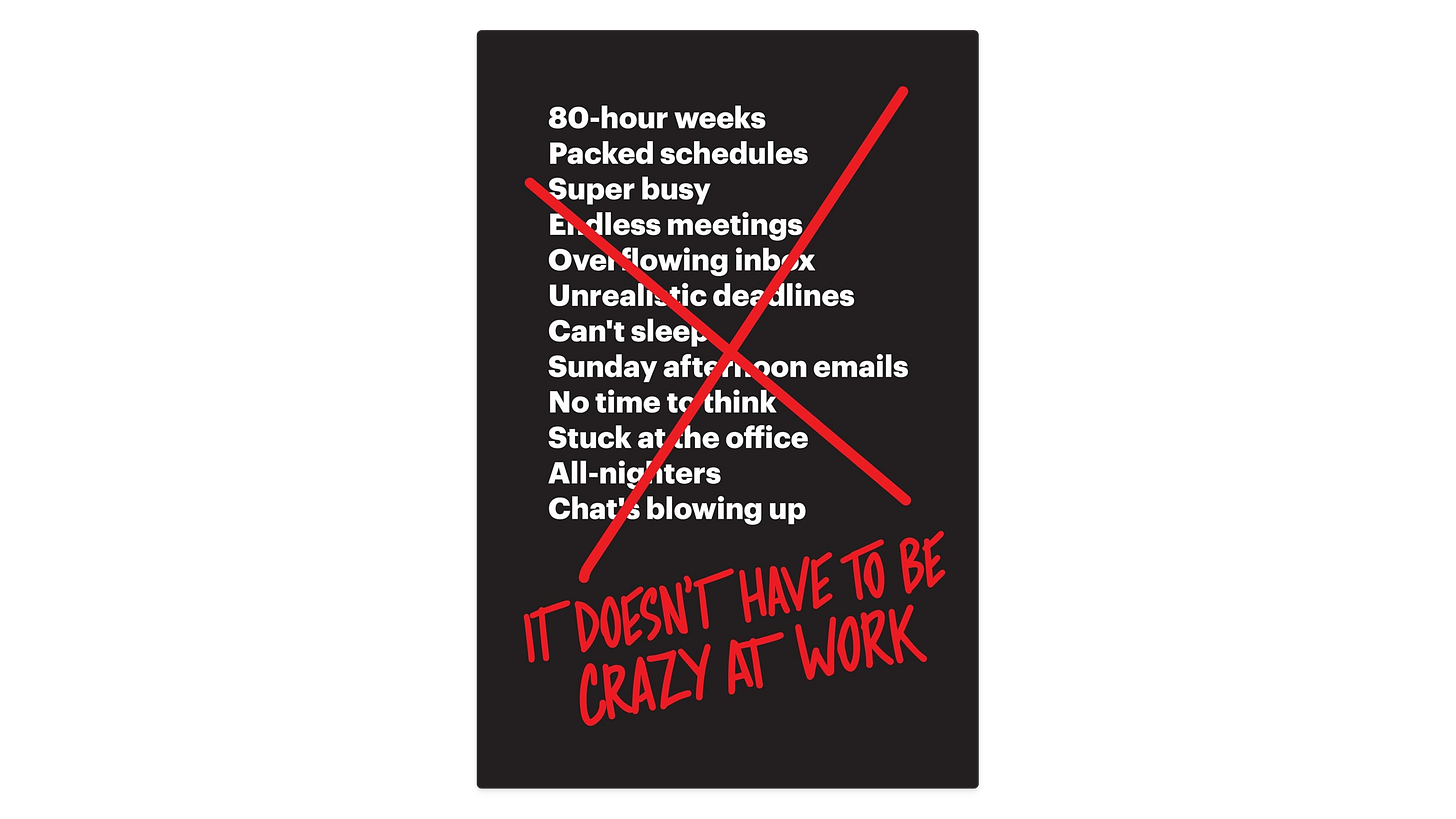It Doesn’t Have to Be Crazy at Work
Reclaim your work-life balance
It Doesn’t Have to Be Crazy at Work (2019) offers a fresh take on fixing unhealthy work culture. Using examples from their own software company, the authors show how to reduce workplace stress and create a calmer, more focused, and productive environment.
How did working 70-hour weeks become a badge of honor instead of a warning sign? When did your workplace start calling itself a "family" instead of what it is—a group of coworkers? Jason Fried and David Heinemeier Hansson, co-founders of Basecamp, tackle these questions and more, offering a much-needed remedy to the chaos of modern work culture.
Rather than chasing longer hours, crushing deadlines, or treating competitors like enemies, it's time to embrace a calmer, more sustainable approach. In this summary, you'll explore how working smart beats working hard and why a healthy work-life balance isn’t just possible for successful companies—it’s essential. Join two corporate mavericks as they challenge the exploitative grind that defines today’s workplaces.
In this summary, you’ll learn:
- Why your company should be treated like a product;
- How to fit your work into a manageable eight-hour day; and
- Strategies to bring lasting calm to your office.
To Tone Down the Workplace Chaos, Treat Your Company Like a Product
How often do you stumble through the front door after a long day and say, "Work was crazy!"? In a world where 70-80 hour workweeks are the norm, this is all too common. But what’s the real outcome of this exhausting culture?
It’s not better productivity. Those extra hours are often wasted on non-essential tasks, distracted by tech and meetings, creating more stress than results. This stress trickles down through the company, from leadership to employees and even customers. So how do you fix this and still remain profitable?
Start by viewing your company as a product. If you make products, then the company is the tool that creates them. Ask yourself: Is your company easy to use or overly complicated? Is it fast where it needs to be, or bogged down? Does it have flaws that need fixing? Just like a product, the company itself requires constant improvement.
Once you begin this evaluation, expect to find plenty of areas for change. Companies, like software, often have weak spots that can cause them to "crash." The good news? You’re about to learn how to cut the chaos and bring calm into your business.


